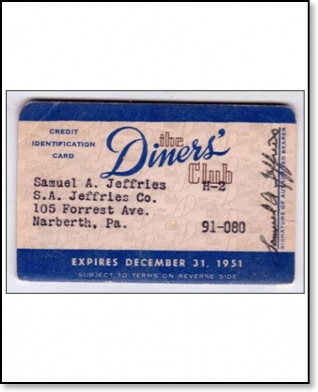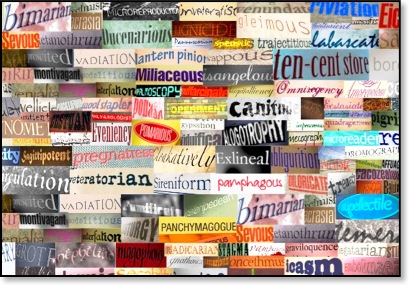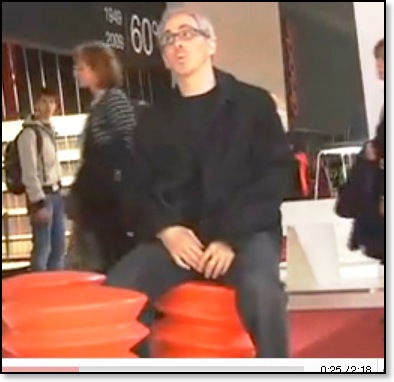Merlin Mann on getting things done
Merlin Mann
runs the 43 things blog, and recently spoke at the
Maximum Fun conference on being creative and getting
things done. It was, to say the least, an interesting
speech -- a little raunchy, a little geeky - but in
the middle section he describes all the things we do
to stop ourselves. As I listened to that portion, I
remembered me first starting out indexing, and
freezing, unable to write an entry for my first
professional job. "I can't do this!" Merlin talks
about that moment and how to get past it, as well as
how a new iPhone isn't going to help you get your
novel written. As an added plus, he talks about
tagging and the taxonomy that the Seduction Society
is using. Who would connect those two worlds other
than Mann?
Worth listening to here.
Worth listening to here.
How students learn now
06/20/09 10:56 Filed in: reading
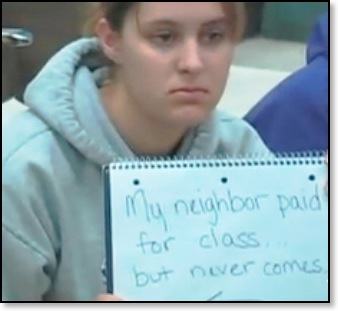
and what it means for technical documentation.
This piece includes a powerful movie put together by students, talking about their own learning styles in the age of tech. Worth a read, and worth a viewing!
How not to vacation
06/19/09 10:55 Filed in: miscellany
Some hints
from outplacement firm Challenger, Gray &
Christmas: You must bring your smartphone, laptop
and every other work-tethering item on your vacation.
If not you’ll just worry about being laid off.
Oh dear, good thing I don't work for a company. Here's more of their great ideas, with Larry Dignan's highlighting in italics:
Just shoot me.
Oh dear, good thing I don't work for a company. Here's more of their great ideas, with Larry Dignan's highlighting in italics:
The general theme of Challenger’s advice isn’t to actually work, but to look like you’re working. That’s productive. Here’s Challenger’s advice with my comments in italics:
- Arrange with your hotel to have a fax machine installed in your room. Chain hotels favored by business guests already have done so. Yes, your boss will be damn impressed that you have a fax machine in your room—especially since he hasn’t used one since 1995.
- While most of the large hotels now offer Internet connections (some free, some for a fee), some of the smaller hotels and motels favored by budget-conscious travelers may not. Prior to leaving, visit websites that can help you locate Wi-Fi hotspots near your hotel. Translation: Spend your vacation in Starbucks.
- If traveling internationally, check with the hotel or car rental agency about leasing a cell phone capable of receiving/making international calls. Or call your carrier for a global card.
- Do not change your voicemail to say you are on vacation and unavailable. Customers may respond by seeking out a new source where someone is available. Many newer phone systems allow you to forward calls to a cell phone. Yeah, that would be great for me. PR calls at the beach woo hoo!
- If you don’t have call forwarding, check voicemails throughout the day and respond personally. Damn, I’m screwed. I don’t do this when I’m working.
- Check e-mails regularly and respond or arrange for someone at the office to respond. This is just in case one of those 1,000 emails a day are worth anything.
- Provide cell phone number, hotel phone number and/or e-mail to your supervisor so they can reach you. That way it’s easier to find you amid layoffs.
- Make sure your laptop or smartphone is set up to retrieve your emails on the road. Probably doesn’t apply to our audience.
- During the workweek, check in with your supervisor and/or a colleague in your department at least twice a day (once in the morning and once in the afternoon). The goal: Be as annoying on vacation as you are during the workweek!
- Make sure you have synched up your PDA so that your calendar, Rolodex, e-mail history, and to-do list are current. And we’re trying a vacation why exactly?
- Make sure to bring the various chargers and A/C adaptors for your cell phone and laptop. The only sane advice here. This applies to all travel.
Just shoot me.
All this social networking stuff - is it making us ADD?
06/18/09 10:54 Filed in: social
networking
A nice
article about the downfalls of having too many input
(and reply requested) streams.... by Tom
Steinert-Threlkeld
Here are some of Dr. Goodman’s recommended techniques:
Screen your screens. Turn off all your screens, when you have work to do.
Grey out the Blackberry. You may not be able to turn it off, but figure out how to set the vibrator to only go off when your boss is trying to reach you.
Slot your communication time. Set an alert to check your Twitter stream just once an hour. Establish a practice of checking your email twice a day, at set times, such as 10 a.m. and 3 p.m. Check everything else on your own time.
Slot your ‘to do’ time. This is the hard one. The natural tendency is to just let the ‘To Do’ list build up and then tackle each item, when there’s time. Make time. Assign an hour to each item, just like it was a meeting or event. Close the door. Do it.
If your day and your focus is still breaking down, you’re going to have to even set some time up for figuring out what your priorities really are (and why) as well as setting (then hitting) deadlines.
All this may mean you’ll have to resist the ethos of the social media and electronic communications that almost has come to be:
I twitter, therefore I am.
Here are some of Dr. Goodman’s recommended techniques:
Screen your screens. Turn off all your screens, when you have work to do.
Grey out the Blackberry. You may not be able to turn it off, but figure out how to set the vibrator to only go off when your boss is trying to reach you.
Slot your communication time. Set an alert to check your Twitter stream just once an hour. Establish a practice of checking your email twice a day, at set times, such as 10 a.m. and 3 p.m. Check everything else on your own time.
Slot your ‘to do’ time. This is the hard one. The natural tendency is to just let the ‘To Do’ list build up and then tackle each item, when there’s time. Make time. Assign an hour to each item, just like it was a meeting or event. Close the door. Do it.
If your day and your focus is still breaking down, you’re going to have to even set some time up for figuring out what your priorities really are (and why) as well as setting (then hitting) deadlines.
All this may mean you’ll have to resist the ethos of the social media and electronic communications that almost has come to be:
I twitter, therefore I am.
The evolution of books - slide show
06/17/09 10:53 Filed in: books | publishing
The evolution of ereaders
06/16/09 10:47 Filed in: ebooks
Great article
and analysis here, with
predictions, by Larry Dignan
Forrester outlines the following timeline:
2007-2009: E-reader adoption is driven by early adopters.
2009-2011: More mainstream folks buy e-readers as features like animation, content ports to other wireless devices and the $199 price point is breached.
2011 and beyond: Video and color appear and the $99 price point becomes reality.
2013-2020: The green movement drives e-reader usage.
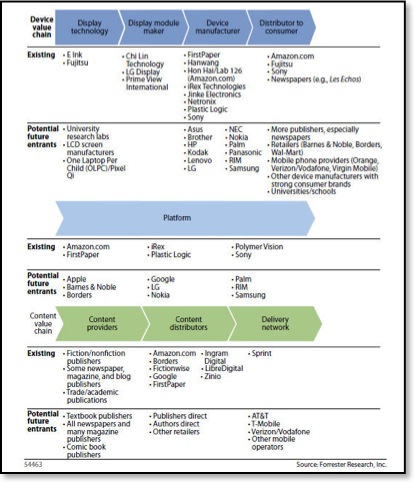
Forrester outlines the following timeline:
2007-2009: E-reader adoption is driven by early adopters.
2009-2011: More mainstream folks buy e-readers as features like animation, content ports to other wireless devices and the $199 price point is breached.
2011 and beyond: Video and color appear and the $99 price point becomes reality.
2013-2020: The green movement drives e-reader usage.

The illustrated history of credit cards
06/15/09 10:46 Filed in: miscellany
Bing vs. Google
06/14/09 10:45 Filed in: search
I have been
researching a couple of topics lately, and getting
nowhere finding good information - one is whether or
not you could hook up a USB wireless modem to Airport
Extreme and use that for your wireless network modem.
I googled all kinds of things to try and find
information on that.
I decided today to try Bing and see what happened. First hit. Even with the word "airport" which often means planes, not Apple airport to google.
So then I tried my friend's name, which on google brings up a lot of his articles, but not his website. Bing brought up the website as the first hit.
I'm impressed, which is hard to be, since I am a curmudgeon about things Microsoft. I didn't think there would be much of a difference, but trying it with "known items that have been failing" impressed me.
I decided today to try Bing and see what happened. First hit. Even with the word "airport" which often means planes, not Apple airport to google.
So then I tried my friend's name, which on google brings up a lot of his articles, but not his website. Bing brought up the website as the first hit.
I'm impressed, which is hard to be, since I am a curmudgeon about things Microsoft. I didn't think there would be much of a difference, but trying it with "known items that have been failing" impressed me.
We are up to a million
06/13/09 10:44 Filed in: word use and
abuse
words in
the English language, that is.
Simon Winchester has more:
It is not known which the millionth word will be, but those on the brink of entering the language as finalists for the one millionth English-language word include "zombie banks", or those banks that would be defunct without government intervention; the pejorative "noob", referring to a newcomer to a given task or community, as in "She's a complete noob to guerrilla gardening"; and "quendy-trendy", meaning hip or up-to-date.
More, and some gristly stories, await you in his full article.
Simon Winchester has more:
It is not known which the millionth word will be, but those on the brink of entering the language as finalists for the one millionth English-language word include "zombie banks", or those banks that would be defunct without government intervention; the pejorative "noob", referring to a newcomer to a given task or community, as in "She's a complete noob to guerrilla gardening"; and "quendy-trendy", meaning hip or up-to-date.
More, and some gristly stories, await you in his full article.
Top ten bookstores in the world
06/11/09 10:43 Filed in: books
Here's the
list:
Amsterdam
Paris
Mumbai
Cape Town
San Francisco
Singapore
Dunedin
London
Sydney
New York
Amsterdam
Paris
Mumbai
Cape Town
San Francisco
Singapore
Dunedin
London
Sydney
New York
15 twitter apps you might need
06/10/09 10:43 Filed in: social
networking
And here I
was just getting used to maybe one, sigh.
DotSauce.com's article just shows how far behind
I really am.
WebWorkerDaily's Golden Rules for Social Networking...
06/09/09 10:42 Filed in: social
networking
6. Share
the Wealth. When I used to talk about the Internet
around the world, one key tenet I repeated almost
every time was to share the wealth. “If you’ve got
it, share it, spread it around,” I’d say, but I
wasn’t only talking about money. I was talking about
time, information and knowledge. In social media,
sharing is the fuel of the conversation engine.
More at WebWorkingDaily
More at WebWorkingDaily
Oxford Dictionaries want you to adopt a word!
06/08/09 10:40 Filed in: miscellany
| word use and
abuse
Plants vs. zombies
06/06/09 10:37 Filed in: silliness

I have fallen victim to playing this game, and I just want to warn you off -- it's addictive.
Download it for free here, but you only get 60 minutes.... hah hahahahhahhaha!
Teaching copyright law to kids and teenagers
06/05/09 10:36 Filed in: publishing
The
Electronic
Freedom Foundation has developed curriculum to
teach copyright law and digital rights.
The innovators, artists and voters of tomorrow need to know that copyright law restricts many activities but also permits many others. And they need to know the positive steps they can take to protect themselves in the digital sphere. In short, youth don't need more intimidation — what they need is solid, accurate information.
EFF's Teaching Copyright curriculum was created to help teachers present the laws surrounding digital rights in a balanced way. Teaching Copyright provides lessons and ideas for opening your classroom up to discussion, letting your students express their ideas and concerns, and then guiding your students toward an understanding of the boundaries of copyright law.
In five distinct lessons, students are challenged to:
* Reflect on what they already know about copyright law.
* See the connection between the history of innovation and the history of copyright law.
* Learn about fair use, free speech, and the public domain and how those concepts relate to using materials created by others.
* Experience various stakeholders' interests and master the principles of fair use through a mock trial.
The innovators, artists and voters of tomorrow need to know that copyright law restricts many activities but also permits many others. And they need to know the positive steps they can take to protect themselves in the digital sphere. In short, youth don't need more intimidation — what they need is solid, accurate information.
EFF's Teaching Copyright curriculum was created to help teachers present the laws surrounding digital rights in a balanced way. Teaching Copyright provides lessons and ideas for opening your classroom up to discussion, letting your students express their ideas and concerns, and then guiding your students toward an understanding of the boundaries of copyright law.
In five distinct lessons, students are challenged to:
* Reflect on what they already know about copyright law.
* See the connection between the history of innovation and the history of copyright law.
* Learn about fair use, free speech, and the public domain and how those concepts relate to using materials created by others.
* Experience various stakeholders' interests and master the principles of fair use through a mock trial.
Some statistics on eBooks
From Alan
Watt at
Wattpad: (and
note, these statistics cover the Wattpad reader
application only)
Our first report covers both country and handset/manufacturer data with some fun facts attached to the end of the report. We expect to expand the report to include more axes of information in the coming months.
Here is the highlight:
• In terms of usage, Indonesia is the top country (39%), followed by US (28%) and Vietnam (9%).
• Java devices are still the most used mobile platform for reading e-books. 63% of e-book usage come from Java devices while iPhone usage grows to 33%.
• Nokia dominates the top device list with 4 of the top 6 are Nokia Series 40. iPhone claims the top spot.
• iPhone dominates US e-book usage with 78% of iPhone usage comes from North America. Nokia still dominates the rest of the world.
• Blackberry usage grew over 400% since the launch of App World. Indicates the effectiveness of an application storefront.
As you can see, although e-reading on iPhone dominates the headlines of US media in the last few months, e-reading is truly a global phenomenon and it is more than “just the iPhone”. ...
Here are some fun facts that you might find interesting too:
• Usage typically surges on weekends by 10%
• Daily usage peaks in the evening at bed time (local times).
• Blackberry users read the least per day as shown in our average daily number of sessions. Perhaps preoccupied by the influx of emails! Blackberry users have about 1.6 session per day, while iPhone users have 2.3 and Java phone users read the most with 2.6 sessions per day.
Our first report covers both country and handset/manufacturer data with some fun facts attached to the end of the report. We expect to expand the report to include more axes of information in the coming months.
Here is the highlight:
• In terms of usage, Indonesia is the top country (39%), followed by US (28%) and Vietnam (9%).
• Java devices are still the most used mobile platform for reading e-books. 63% of e-book usage come from Java devices while iPhone usage grows to 33%.
• Nokia dominates the top device list with 4 of the top 6 are Nokia Series 40. iPhone claims the top spot.
• iPhone dominates US e-book usage with 78% of iPhone usage comes from North America. Nokia still dominates the rest of the world.
• Blackberry usage grew over 400% since the launch of App World. Indicates the effectiveness of an application storefront.
As you can see, although e-reading on iPhone dominates the headlines of US media in the last few months, e-reading is truly a global phenomenon and it is more than “just the iPhone”. ...
Here are some fun facts that you might find interesting too:
• Usage typically surges on weekends by 10%
• Daily usage peaks in the evening at bed time (local times).
• Blackberry users read the least per day as shown in our average daily number of sessions. Perhaps preoccupied by the influx of emails! Blackberry users have about 1.6 session per day, while iPhone users have 2.3 and Java phone users read the most with 2.6 sessions per day.
You know it's bad if John Sayles can't sell anything
06/01/09 10:34 Filed in: publishing
John
Sayles - writer-filmmaker - is shopping a sprawling
work of historical fiction, but no big publishers are
buying. Such is the cautious state of publishing
today.
When an audience at City University of New York’s Gotham Center gave Sayles an ovation. But then he was humbled by a question from a woman in the front row: When would the book be out?
“I’ve been done with it for six or seven months, and it’s out to five or six publishers,” he said quietly. “But we haven’t had any bites yet.” Maybe some small book publishers...
John Sayles, Oscar-nominated creator of “Return of the Secaucus 7,” “Lone Star,” “Matewan” and other movies, is having trouble getting a book deal.
The situation is almost entirely traceable to the publishing industry’s economic woes, and it’s raising eyebrows, because Sayles was an accomplished fiction writer long before he made his first film. Weighing in at a whopping 1,000 typed pages, “Some Time in the Sun” is his first novel since 1990’s “Los Gusanos.”
“This is really astonishing,” says Ron Hogan, senior editor of Galleycat.com, a website devoted to publishing news. “I mean, this is John Sayles! You’d think there would be some editor who’d be proud to say, ‘I brought the new John Sayles novel to this house.’ ”
More here...
When an audience at City University of New York’s Gotham Center gave Sayles an ovation. But then he was humbled by a question from a woman in the front row: When would the book be out?
“I’ve been done with it for six or seven months, and it’s out to five or six publishers,” he said quietly. “But we haven’t had any bites yet.” Maybe some small book publishers...
John Sayles, Oscar-nominated creator of “Return of the Secaucus 7,” “Lone Star,” “Matewan” and other movies, is having trouble getting a book deal.
The situation is almost entirely traceable to the publishing industry’s economic woes, and it’s raising eyebrows, because Sayles was an accomplished fiction writer long before he made his first film. Weighing in at a whopping 1,000 typed pages, “Some Time in the Sun” is his first novel since 1990’s “Los Gusanos.”
“This is really astonishing,” says Ron Hogan, senior editor of Galleycat.com, a website devoted to publishing news. “I mean, this is John Sayles! You’d think there would be some editor who’d be proud to say, ‘I brought the new John Sayles novel to this house.’ ”
More here...


